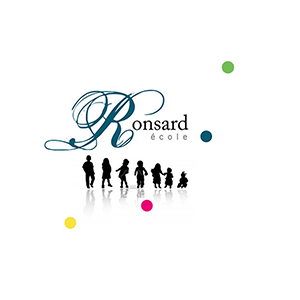Examinations: Are They A True Reflection Of A Student’s Intelligence?
Examinations: Are They A True Reflection Of A Student’s Intelligence?
Exams, according to Wikipedia, are used to evaluate and assess a student’s skills and knowledge. Among the many explanations for why students are required to take tests at particular periods, the use of this instrument to assess what they have learned about particular subjects stands out.
While some argue that Albert Einstein’s inability to pass his examinations had no bearing on his ability or determination to showcase his brilliance and change the world, others have concluded that an exam is the best measure of a child’s intelligence.
For some people, taking an exam is counterproductive because it is unfair and seems to favour pupils with strong memorization skills.
Moreover, students can never completely study for an exam because they are unable to predict what will be covered in advance.
Therefore, if a child’s intelligence is to be determined just by how well they perform in exams, they will be nothing more than the metaphorical fish Albert Einstein uses in his famous quote that “everyone is a genius.”
Many of us can remember the exam season. The intimidating feeling of walking into the exam room, seeing your name on the exam desk, and sitting down with a booklet containing blank papers and unanswered questions.
It’s hard to forget the sweaty palms and queasy feelings that occasionally prevent you from remembering what you’ve been revising for the past few days. And in the midst of it all, you start to question what the examinations are really for and whether the stress you are currently under will be worthwhile in the long run.
Yes, we have all been there, and the majority of individuals will attest to the constant repetition of these thoughts in their minds.
But that is not the primary focus of this article. Today, we’re interested in determining whether examination, despite its numerous benefits, also accurately reflects a child’s intelligence or anyone else’s for that matter.
Some people firmly believe that exams don’t accurately represent a student’s knowledge of a given subject. They don’t demonstrate a student’s aptitude. They do not adequately depict a person’s character. To these folks, they only demonstrate a student’s capacity for memorization of passages from textbooks.
They claim that school exams only represent a small sample of a student’s understanding of that particular topic. The underlying presumption is that if someone can complete these problems or respond to these questions, they can likely complete similar tasks for other parts of the same content.
Additionally, a person might become extremely educated about a subject by thoroughly studying it. However, knowledge is broad and can become meaningless if not put to use with understanding. This means that a person’s success on a test may not always reflect the breadth of their knowledge in a given subject or field.
Some children are incredibly bright but only achieve passing or low passing grades. There are several reasons why this occurs. These students may be lazy, have home issues, be worn out from play, have been told they are not smart and believe it, or simply despise the idea of school.
The student with the best marks isn’t always the one who is the smartest in the room. Rarely is the student in the class with the lowest grades also the least intelligent. The grades a pupil receives have more to do with factors besides intellect than with intelligence itself, even if high intelligence undoubtedly helps a person learn more and low intelligence makes learning more difficult.
This is to say that academic success is a skill set rather than a measure of inherent intelligence. Simply put, having great intelligence alone won’t guarantee good grades. Additionally, a person with ordinary intelligence is not doomed to never achieve high academic standing.
While other students thrive when writing an end-of-year exam, certain pupils perform better in more realistic settings. Exams mostly serve as memory exercises rather than aptitude or knowledge tests.

The abovementioned submissions make one question what, besides academic tests, serves as the primary criterion of intelligence. The truth is examinations are not bad concepts, but it becomes a problematic creation if we use exams to substitute for ongoing assessment.
An examination is simply an evaluation based on a few hours of performance and observation; it is undoubtedly not as objective as a continuous assessment.
While exams are primarily meant to assess a student’s comprehension of the material covered in class, assignments, project work, class participation, and exposure to the outside world can help students identify skills that may not be apparent in written exams.
As Albert Einstein said, everybody is a genius. but if you judge a fish by its ability to climb a tree, it will live its whole life believing that it is stupid. Exams measure your contextual intelligence. To be fair, they are required to analyze a student’s capacity for memorization, stress tolerance, and compliance with rules and instructions.




